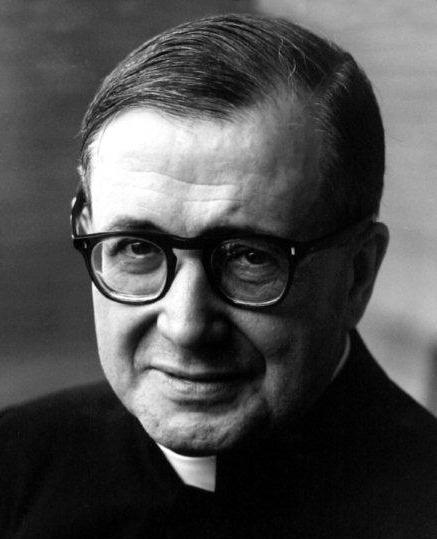
This coming Sunday is the First Sunday of Advent, with the Lectionary beginning Year B.
The Doctrinal Homily Outline breaks down as follows:
Central idea: Be watchful! Be alert! Doctrine: Humble vigilance of heart in prayer. Practical application: Being a better servant.
To view the complete outline, click here.
A modern (unofficial) Doctor of the Church
Over the next two weeks, I would like to present two men whom I think every Catholic should know about. They are not official Doctors of the Church (of whom there are currently thirty-seven) but each might someday be so declared. The title Doctor of the Church refers to one’s effectiveness in teaching the Catholic faith (doctor means teacher and doctrines are teachings).
St. Josemaria Escriva
The first doctor I will discuss is a canonized saint: St. Josemaria Escriva (1902-1975). While St. Josemaria possessed a powerful intellect, his writing and preaching were always practical; that is, he succeeded in making in the Catholic faith and how to live it accessible to any follower of Christ.
What are a few ways St. Josemaria can help us today?
First is the idea of the universal call to holiness. This idea was embraced by the Second Vatican Council, and it has always been a dimension of the Catholic Faith, but through God’s inspiration, St. Josemaria brought it to the fore at a time when so many people thought that if you wanted to be holy you had to become a priest or religious. But God’s will is that each one of us, regardless of our state in life, live holy lives now.
A second idea St. Josemaria taught is the sanctification of ordinary life and work. Each person, regardless of his or her occupation (provided it is an honest one), age, family circumstance, level of wealth, or state of health, can pursue holiness within that condition. How is this accomplished? You act out of love of God and neighbor, with the help of God’s grace, justly and competently.
Part of St. Josemaria’s genius was that he could translate ideas into practical realities. One of these ways was through spiritual norms and Catholic customs that keep a person united to Christ. A few of them, totally traditional and non-controversial, are a morning offering, some time in mental prayer (a daily conversation with God), evening examination of conscience, the Rosary and noon Angelus, a few minutes a day reading a Gospel and other spiritual books, and if possible, daily Mass and Communion and regular Confession.
A last gift St. Josemaria has given modern Catholics (the last I’ll mention, but certainly not the last he offered) is his emphasis on human and supernatural virtues and how to live them better. The theological and cardinal virtues and all the other virtues related to them are what makes it possible for us to be free to cooperate with God’s grace to do God’s will in whatever circumstances we find ourselves in this life. Most of the practical applications you will find in Doctrinal Homily Outlines are drawn from advice given by St. Josemaria or his many faithful followers.
Here is a link to a seven-minute video about St. Josemaria that will do a better job introducing you to his life than I can.

Leave a Reply